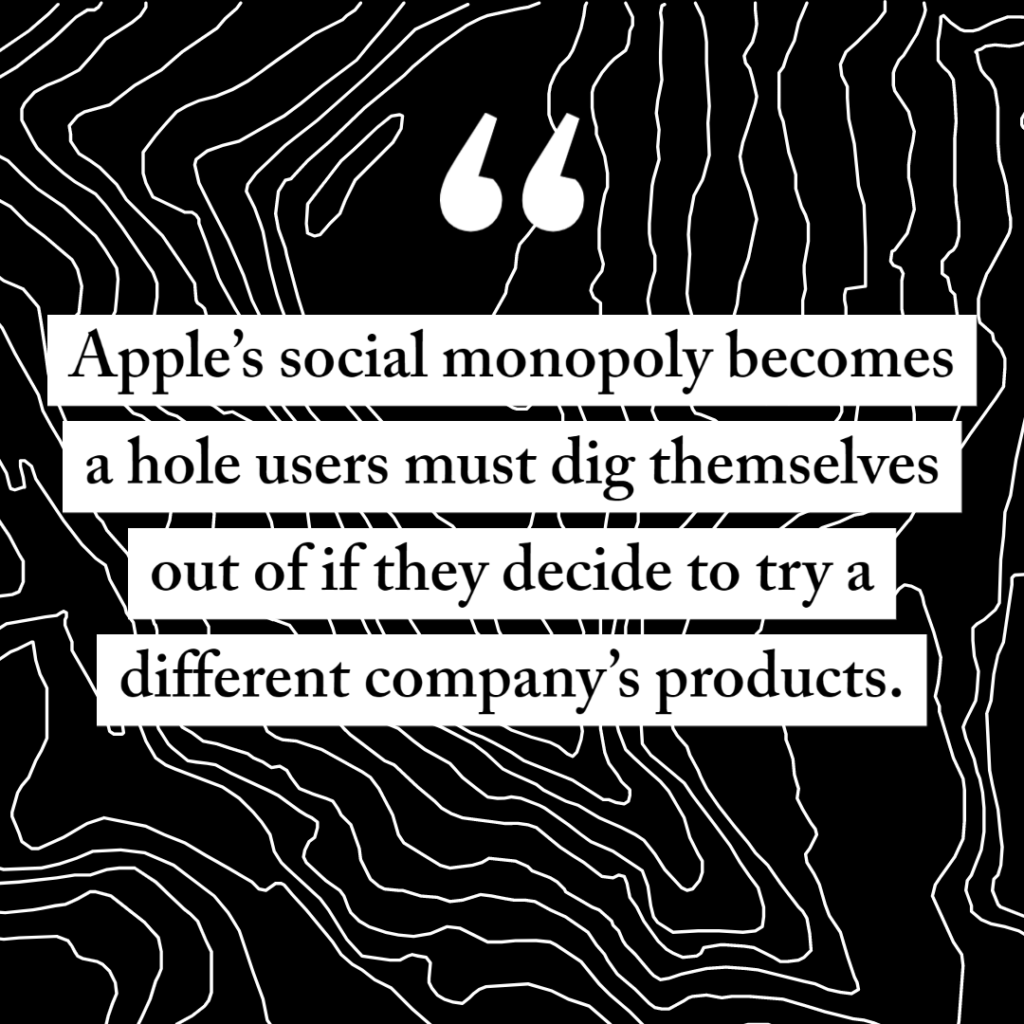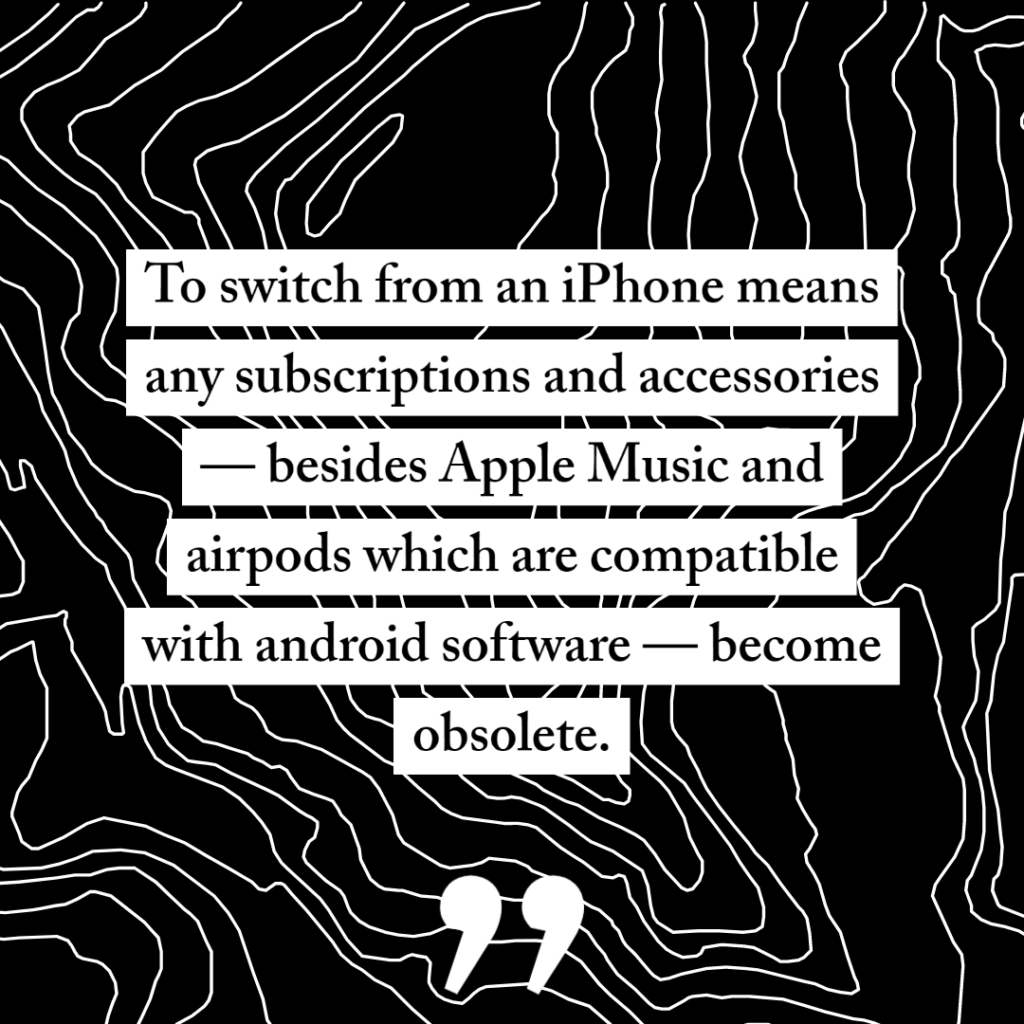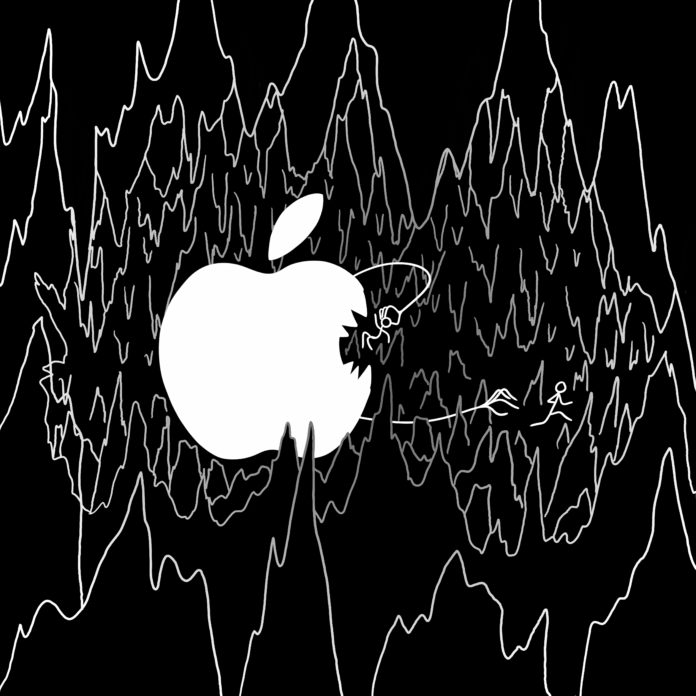Natalie Mifflin
Contributing Writer
Apple has become a ubiquitous supplier of phones, computers, and other smart devices that move the world closer to technological advanced ideas of the future. Making personal computers since 1976, Apple has made nothing short of an empire that could easily be considered a social monopoly.
Apple has maintained its image by emphasizing values of education, environmentally conscious production, inclusion, diversity, and privacy. By partnering with popular and luxury brands for functionality and aesthetics, they maintain social capital and reputation.
Apple owns Beats Electronics along with its strong ties and partnerships with major companies like Adobe, Nike, and the luxury designer Hermès. Associating with such well-known brands helps Apple cater to a growing audience of content creators, athletes, and luxury clients that want a technological edge. This combination of aesthetic appeal and functionality helps Apple drive customer loyalty with their own software and subscription services.
Homepods and Apple Watches are extensions of users’ lives, integrating apps that connect different aspects of life. Some apps promote wellness by prompting users to constantly use their devices to track their day to day activities. Subscription services exclusive to Apple tie consumers to their devices. Especially with the announcement of Apple One which bundles all of them — Apple Music, iCloud, Arcade, News+, TV+, and Fitness+ — at a discounted price. With all these services, Apple can become the sole source of mass media.
Apple’s social monopoly becomes a hole users must dig themselves out of if they decide to try a different company’s products. To switch from an iPhone means any subscriptions and accessories — besides Apple Music and Airpods which are compatible with Android software — become obsolete.

Leaving Apple means losing access to shows, games, news outlets, and fitness, etc. — leaving users to find new alternatives. Leaving the ecosystem makes you lose access to Facetime — which is universal with Apple users — and substitute it for third-party video call services like Skype, Zoom, or Discord. It also means being called a “green bubble” by Apple enthusiasts and splitting a single group chat into several conversation threads that are impossible to follow if there are any Apple users in the chat.
Apple not only encourages you to stay within its ecosystem, but also as the tech becomes faster and more powerful, the uses for Apple products extends to competitive gaming. In the gaming community — where better graphics and smooth gameplay is a necessity for any gaming console — Apple claims some of its new products can deliver, especially in competitive multiplayer games.
In Apple’s most recent event in October where it announced the new iPhone 12, it highlighted “League of Legends: Wild Rift” with Michael Chow, the executive producer of Riot Games. Chow claims that the power of Apple’s A14 bionic chip makes competitive gameplay on the iPhone “always responsive and unbelievably smooth” with characters being seen with a “brand new level of fidelity that you can’t find on any other platform.” To make a game with as big of an e-sports presence as “League of Legends” playable on a smartphone could mean securing a whole new community to stay with iPhone as a standard for mobile gaming without being tied down to a computer.
Apple products also play big roles in the entertainment industry. The strategic product placement in movies and TV shows displays Apple as a brand for individuality and tasks as complex as movie espionage. iPhones are used in “Knives Out” but were not allowed to be used by “bad characters;” Elle Woods’ colorful MacBook stands out from her classmate’s drab black laptops in “Legally Blonde,” and a friendly Apple representative makes light conversation with Steve Rodgers and his “fiancée” in the official “Hacking in the Apple Store” scene from “Captain America: The Winter Soldier.”

Product placement is so valuable to Apple’s social capital because as one of the only recognizable brands featured in a movie, the product seems popular in the hands of celebrities — almost romanticized. After all, how many interactions with your phone do you have on a daily basis that change your life the way a well-placed profession of love can for a “rom-com” couple?
In the age of technology, phones and computers have more uses than communication as Apple extends its reach to be part of a lifestyle. Its products and services are great, but without questioning the extent of their use, Apple seems like the fruit of both good and evil in the “Garden of Tech.”











